| |
County Aims to End Stigma of Mental Illness
The County of San Diego County Health and Human Services Agency’s (HHSA) Mental Health Services division and its many partners are celebrating Mental Health Month with a series of events aimed at reducing the stigma associated with mental illness. Health Services division and its many partners are celebrating Mental Health Month with a series of events aimed at reducing the stigma associated with mental illness.
...“I’m proud that we can partner with a strong, active coalition of organizations to get people the mental health services they need so they can lead healthier lives,” said Chairman Greg Cox of the San Diego County Board of Supervisors.
...A mental illness is a disease that causes mild to severe disturbances in thought and/or behavior, resulting in an inability to cope with life’s ordinary demands and routines.
There are more than 200 classified forms of mental illness, including depression, bipolar disorder, dementia, schizophrenia and anxiety disorders.
....“The fear of rejection and discrimination prevents people with a mental illness from getting access to needed mental health services. Mental Health Month and other awareness campaigns are helping change the way people with a mental illness are viewed,” added Alfredo Aguirre, Director of HHSA’s Mental Health Services division..Continued
County Appoints New Health and Human Services Agency Director
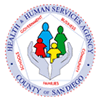
... San Diego County Chief Administrative Officer Walt Ekard announced today that Nick Macchione has been appointed as the new County Health and Human Service Agency’s (HHSA) director, effective June 5, when Jean Shepard retires.
“The Director of HHSA is a critical position for the County of San  Diego and the region as a whole. Nick Macchione brings tremendous leadership skills, knowledge and experience to the position,” said Greg Cox, Chairman of the County Board of Supervisors. Diego and the region as a whole. Nick Macchione brings tremendous leadership skills, knowledge and experience to the position,” said Greg Cox, Chairman of the County Board of Supervisors.
Macchione has served as an Agency Deputy Director/Regional General Manager for the past 10 years. He has a diverse professional background including work experience with universities, academic medical centers, for-profit and non-profit healthcare corporations, political advocacy groups, and the County of San Diego.
“Nick has done a tremendous job as a Regional General Manager for HHSA for many years; he is the right individual to take command of this extremely important position,” said County Chief Administrative Officer Walt Ekard.
“I am truly honored to serve the residents of San Diego County in this capacity,” said Nick Macchione. “HHSA staff work every day to improve the health, safety and well-being of children, families and seniors. My goal is to continue building on the Agency’s foundation of operational excellence and partnerships with the community in serving our residents.”
Macchione earned an Executive Master’s of Public Health in Healthcare Administration & Policy from Columbia University. He also earned a Master’s degree in management from New York University and a B.A. in biology from Rutgers State University. Macchione also holds three professional fellowships in the fields of healthcare administration, public health, and community health.
The Health and Human Services Agency Director is responsible for an annual budget of $1.8 billion and a workforce of more than 5,600 employees. Macchione will implement policy directives of the Board of Supervisors and the County's Chief Administrative Officer, and manage the day-to-day operations and functions of the Agency, which is one of five groups or divisions of County government.
Jean Shepard is retiring from the County after 32 years of service.
Four Dead Birds Test Positive For West Nile
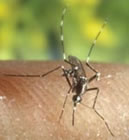
.....“Four dead birds discovered around San Diego County have tested positive for West Nile virus, bringing the total number to 14 this year.The birds were found in Mira Mesa, Carmel Valley and Rancho Bernardo, according to the San Diego County Department of Environmental Health.
The warm and wet spring weather has created ideal mosquito breeding conditions. The County is encouraging residents to be aware of the potential for increased West Nile virus activity.
"As the number of birds testing positive for West Nile virus increases, it is more important than ever for residents to protect themselves," said Gary Erbeck, director of the county DEH.
"There are a few simple steps residents can take, such as preventing mosquito breeding, wearing protective clothing and using insect repellent to protect yourself from mosquito bites, and reporting mosquito breeding (sites) and dead birds to county Vector Control," he said.
Dead birds can be reported, and more information on West Nile virus obtained in 12 languages, on the county's Web site at www.SDFighttheBite.com.
Advocates Give Voice to Alzheimer’s Cause
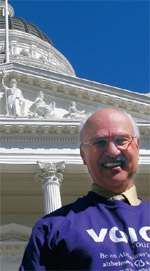
.....“"Don Hayen is a Champion". As a retired physician and an individual in early stage Alzheimer’s disease, he is an active voice in the community.Through this experience, Don shares one simple message, “I am advocating for physicians to diagnose and treat earlier, as it makes such a difference.
Getting my diagnosis earlier has meant that I can get more effective treatment, and I can be my own advocate.” The Chapter is actively involved in creating public awareness and invites others to join the Advocacy Network.
For more information, go to our website www.sanalz.org and join the cause!
New Farmers’ Market in City Heights
...“We Grow it Fresh, You Buy it Fresh!” That’s the slogan of the new City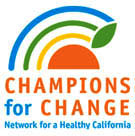
Heights Open-Air and Certified Farmers’ Market planned for opening in June 07 2008. The Network for a Healthy California and the Mid-City Community Advocacy Network announced the launch of the City Heights Farmers’ Market which will provide a venue for the sale of fresh, affordable, culturallyappropriate and locally grown foods. The Market will also create opportunities for cultural exchange and education regarding the environment, the community and good nutrition. The heart of the market will be comprised of local San Diego farmers offering a variety of seasonal fruits and vegetables at affordable cost by establishing San Diego’s first EBT (Food Stamps) accessibility at the market. Each vendor will also be equipped to accept WIC Farmer’s Market Nutrition Program vouchers throughout the summer months.These vouchers will allow WIC participants to purchase fresh produce directly from farmers. In addition to fresh produce, market vendors will offer a potpourri of prepared and ready-to-eat foods, as well as handmade or imported crafts representing the cultural diversity so distinctive to the City Heights community. The Market will be more than a place to buy food—it will be a place to cultivate a healthier, more connected community. The Market will provide opportunities to promote health education, engage the City Heights community, business owners and social service providers in the Market, provide a venue for local entertainers to perform, and promote cross-cultural exchange. The farmer’s market is slated to open in June 07 2008 and will be held every Saturday from 9:00 am-1:00 pm behind the Weingart Library on Fairmount Ave., adjacent to the City Heights recreation center pool
and the Rosa Parks joint use field. For more information please call (619) 955-1041.
1-800-QUIT-NOW Reaches One Million
.....“Tobacco use is responsible for one in every five deaths in the United States each year,  according to Centers for Disease Control and Prevention (CDC) data. And with more than 45 million Americans currently smoking cigarettes, tobacco use is also the leading preventable cause of death in this country. according to Centers for Disease Control and Prevention (CDC) data. And with more than 45 million Americans currently smoking cigarettes, tobacco use is also the leading preventable cause of death in this country.
CDC, through its Office of Smoking and Health (OSH), is the lead federal agency in a comprehensive, broad-based approach to reducing tobacco use. OSH is committed to ensuring that all people, especially those at greater risk for health disparities related to tobacco use, will achieve their optimal life span with the best possible quality of health in every stage of life.
Working with a variety of government agencies, professional and voluntary organizations, and academic institutions, OSH aims to prevent young people from starting to smoke, eliminate exposure to secondhand smoke, identify and eliminate tobacco-related health disparities and promote quitting among young people and adults.
"The single best step that a smoker can take to protect his or her health – and that of non-smoking family members — is to quit smoking," said Matthew McKenna, M.D., M.P.H., director, OSH. "Quitting smoking has immediate as well as long-term benefits, including reducing risks for cancer, heart disease, stroke, and respiratory illnesses."
Taking that first step to quitting is often difficult for smokers, but CDC, in partnership with the National Cancer Institute, the North American Quitline Consortium, and state tobacco control programs, developed the National Network of Tobacco Cessation Quitlines to provide callers free and easy access to tobacco cessation services in their state.
More than 1 million people have called 1-800-QUIT-NOW since it was established in November 2004. This telephone-based network serves as a single point of access for smokers to receive free quit coaching, a free quit plan, free educational materials, and referrals to local resources in their state.
1-800-QUIT NOW is just one of many examples of OSH's efforts to protect the public's health from the harmful effects of tobacco use.
OSH also created the National Tobacco Control Program (NTCP) in 1999 to encourage coordinated, national efforts to reduce tobacco-related diseases and deaths. The program provides funding and technical support to all 50 states, the District of Columbia, 7 U.S. territories, and 7 tribal-serving organizations. In addition, CDC funds national networks to reduce tobacco use among specific populations. CDC also provides grants to 23 states for coordinated school health programs to help prevent tobacco use.
Programs funded by NTCP are working to achieve the objectives outlined in CDC's Best Practices for Comprehensive Tobacco Control Programs—2007. This resource is an evidence-based guide to help states establish and sustain effective tobacco control programs. According to McKenna, Best Practices—2007 "identifies what works, including the investment needed to end the tobacco-use epidemic and prevent the staggering toll that tobacco takes on our families and communities."
"The tobacco-use epidemic can be stopped," said McKenna. "OSH will continue to work with policy makers, health officials, partners, and the public to ensure that tobacco control remains a core component of public health."
Cases Of Recreational Water Illnesses On The Rise
.....“More recreational water illnesses (RWI) outbreaks were reported in 2007 than ever before, and the numbers could increase in the coming years, according to the Centers for Disease Control and Prevention (CDC).
RWIs are illnesses that are spread by swallowing, breathing, or having contact with germs in the water of swimming pools, spas, lakes, rivers, or oceans.
“The leading cause of RWI outbreaks is Cryptosporidium or Crypto, a chlorine-resistant parasite, primarily associated with treated swimming places, such as pools and water parks,” explained Michele Hlavsa, an epidemiologist at the CDC. “This RWI has been a public health issue in the past and will likely pose an even bigger challenge in the future.”
During 2004-2007, the number of Crypto cases tripled. At the same time, the number of Crypto outbreaks linked to swimming pools more than doubled. Because Crypto is chlorine resistant, even a well-maintained pool can transmit this parasite.
“People need to practice healthy swimming habits, such as not swimming when they have diarrhea, not swallowing the water, taking a shower before swimming, washing their hands after using the toilet or changing diapers, and washing their children thoroughly with soap and water before swimming. To prevent outbreaks, we encourage pool operators to add supplemental disinfection to conventional chlorination and filtration methods,” adds Hlavsa.
Symptoms generally begin two to 10 days (average seven days) after becoming infected with the parasite.
Crypto is characterized by watery diarrhea lasting one to three weeks. It can be spread by swallowing recreational water contaminated with Crypto or by putting something in your mouth or accidentally swallowing something that has come in contact with the stool of a person or infected animal. Other symptoms include stomach cramps or pain, dehydration, nausea, vomiting, fever, and weight loss. Crypto is not spread by contact with blood.
“Help Seniors Live Better, Longer: Prevent Brain Injury”
.....Millions of people in this country provide care for an older adult—a parent, grandparent, other family member, professional caregiver, or a close friend. For most caregivers, the older adult’s health is the overriding concern. One way to help older adults live, better lives and stay independent is by learning about traumatic brain injury, or TBI and how to prevent it.
“Help Seniors Live Better, Longer: Prevent Brain Injury” is a CDC initiative to raise awareness among children and other caregivers of older adults about ways to prevent, recognize, and respond to TBI in adults 75 and older.
As part of this initiative, CDC has developed easy-to-use English- and Spanish-language materials for older adults and their caregivers.
Each of these materials uses a concise question–and-answer format to provide information that older adults and their caregivers can use to take an active role in preventing, recognizing, and responding to TBI. More about the CDC Campaign. More about the National Brain Injury Awareness Month
|

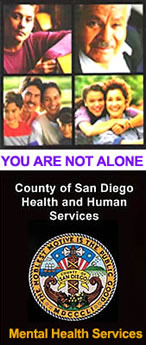
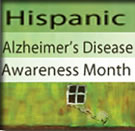

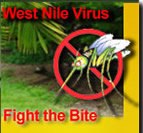


 Health Services division and its many partners are celebrating Mental Health Month with a series of events aimed at reducing the stigma associated with mental illness.
Health Services division and its many partners are celebrating Mental Health Month with a series of events aimed at reducing the stigma associated with mental illness.
 Diego and the region as a whole. Nick Macchione brings tremendous leadership skills, knowledge and experience to the position,” said Greg Cox, Chairman of the County Board of Supervisors.
Diego and the region as a whole. Nick Macchione brings tremendous leadership skills, knowledge and experience to the position,” said Greg Cox, Chairman of the County Board of Supervisors.


 according to Centers for Disease Control and Prevention (CDC) data. And with more than 45 million Americans currently smoking cigarettes, tobacco use is also the leading preventable cause of death in this country.
according to Centers for Disease Control and Prevention (CDC) data. And with more than 45 million Americans currently smoking cigarettes, tobacco use is also the leading preventable cause of death in this country.